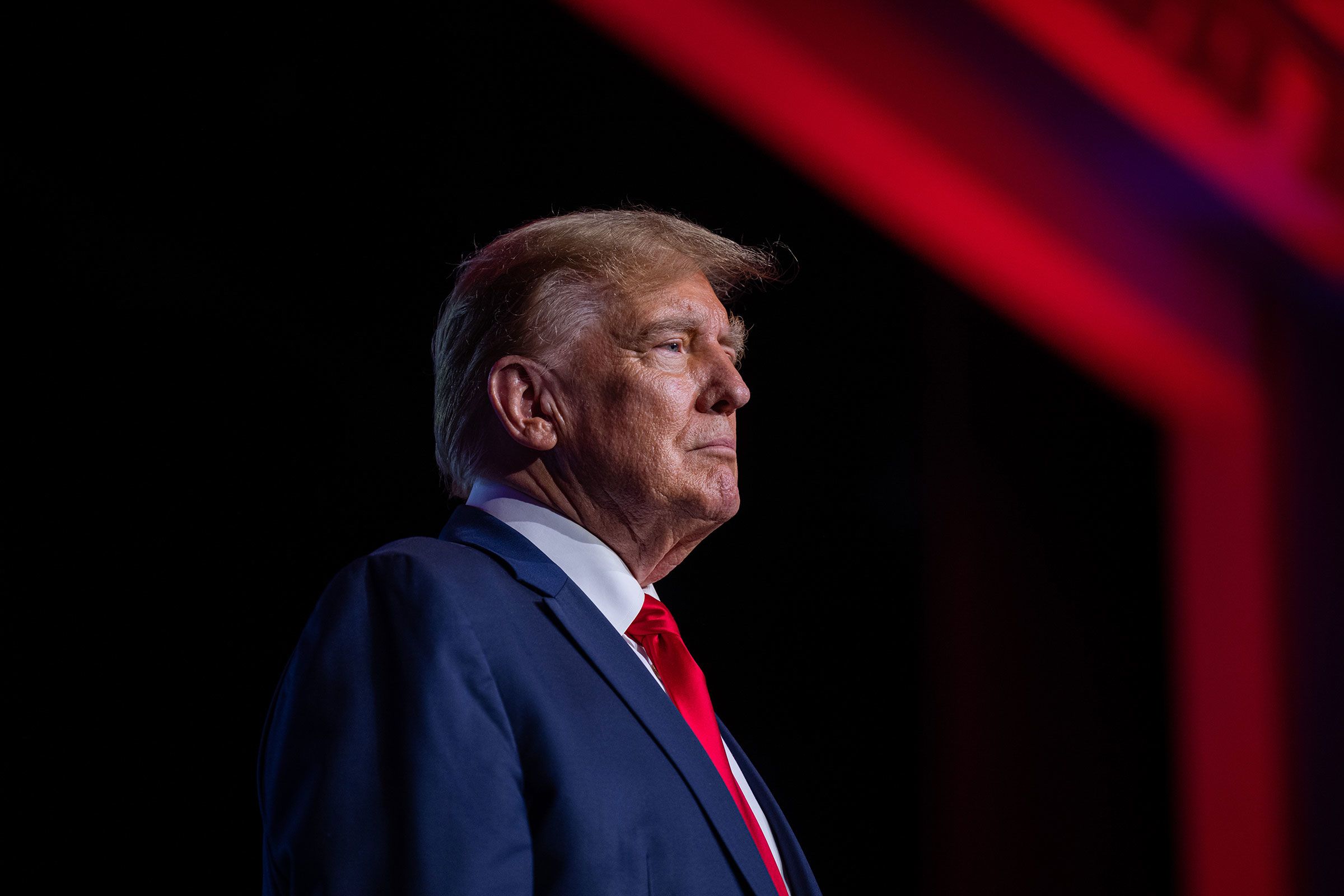Former President Donald Trump is facing difficulties in securing an insurance company to underwrite his bond, which is required to cover the substantial judgment against him in a civil fraud case led by the New York attorney general, according to his legal team. The bond, which is due by the end of this month, has been rejected by 30 underwriters approached by Trump’s attorneys.
“The judgment, including interest, totals over $464 million, a figure that few bonding companies are willing to consider,” stated Trump’s legal team. The judgment includes a $454 million payment ordered to be paid by Trump himself, with the remaining $10 million accounting for disgorgement from his adult sons, Don Jr. and Eric.
Insurance broker Gary Giulietti, who testified on behalf of Trump during the trial, signed an affidavit stating that securing a bond of this magnitude is virtually impossible. Underwriters are demanding cash to back the bond, not properties, Trump’s lawyers added.
Trump’s legal team has requested the appeals court to postpone the bond posting until the appeal process is completed, arguing that Trump’s properties’ value far surpasses the judgment. If the appeals court rules against this request, Trump has asked for a delay in posting the bond until his appeal to New York’s highest court is heard.
Last month, New York Judge Arthur Engoron ordered Trump to pay $355 million in disgorgement, or “ill-gotten gains,” in a civil fraud case initiated by New York Attorney General Letitia James. The judge’s 93-page decision found Trump and his co-defendants, including his adult sons, liable for fraud, conspiracy, and issuing false financial statements and business records. The defendants were found to have fraudulently inflated the value of Trump’s assets to secure more favorable loan and insurance rates. With interest, the amount Trump owes exceeded $450 million.
Trump is appealing the ruling, but to prevent the state from enforcing the judgment, he must post a bond to be held in an account during the potentially years-long appellate process. Trump previously posted a $91.6 million bond as part of his appeal in the E. Jean Carroll defamation case. However, Giulietti stated that many of the largest underwriters have internal policies limiting them from securing a bond exceeding $100 million. These underwriters, including some of the world’s largest insurance companies, will only accept cash or stock, not real estate. Including fees and interest, Trump would need to raise over $550 million.
“In my career, I have been involved in the issuance of thousands of bonds, but I have never seen an appeal bond of this size for a private company or individual,” Giulietti said. “Despite substantial good-faith efforts over the past few weeks, obtaining an appeal bond for the Judgment Amount of over $464 million is simply not feasible under these circumstances.”
Alan Garten, the Trump Organization’s top legal officer, stated in a sworn statement that Chubb, the underwriter of Trump’s $91.6 million bond for the Carroll judgment, could not accept real estate as security for the civil fraud bond. Garten described the refusal of underwriters to accept real estate as a “major obstacle” to securing a bond.
Trump campaign spokesman Steven Cheung criticized the size of the fraud judgment, stating, “A bond of this size would be an abuse of the law, contradict the fundamental principles of our Republic, and fundamentally undermine the rule of law in New York.” Cheung added, “President Trump will continue fighting and beating all of these Crooked Joe Biden-directed hoaxes and will Make America Great Again.”
CORRECTION: This article has been updated to correct the spelling of Trump’s insurance broker, Gary Giulietti. Additional details and background information have also been included.

